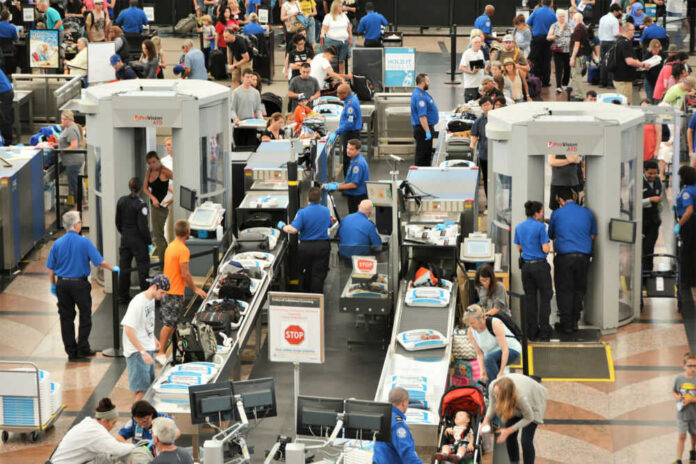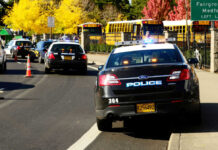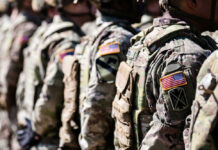
(RightWingJournal.com) – One ordinary family’s courage and quick action might have averted mass tragedy at the world’s busiest airport, reminding us that sometimes, the greatest defense against chaos is simply picking up the phone.
Story Snapshot
- A family member’s tip prevented a possible attack at Atlanta’s Hartsfield-Jackson International Airport.
- Authorities arrested a man carrying an AR-15 rifle and 27 rounds after he made threats during a video call.
- The event spotlights the importance of community vigilance and rapid interagency response.
- Past airport security breaches add urgency to strengthening protocols and family awareness.
Family Vigilance Prevents Disaster Before It Starts
At 9:29 AM, Mr. Kaggel rolled into the south terminal of Atlanta’s Hartsfield-Jackson International Airport, the busiest in the world. By 9:31, he had entered the terminal, and less than thirty minutes later, he was in police custody, thanks to a single tip from a family member alarmed by threats made during a video call. Officers found an AR-15 rifle and nearly thirty rounds of ammunition in his car, tools for a tragedy that never happened. The rapid arrest, based on a family-provided photo and detailed tip, showcased the power individuals wield in stopping violence before it starts.
Airport police and the FBI moved with precision, tracking the suspect through the maze of terminals and crowds. The outcome? No shots fired. No chaos. Just a man in handcuffs and a city spared from headlines that could have read very differently. Authorities quickly credited the family for their bravery and underscored the lesson: vigilance is not just for professionals, it’s a responsibility for all.
Security at the World’s Busiest Hub: A History of Breaches and Fixes
Hartsfield-Jackson Atlanta International Airport handles millions every year, its security systems tested by both insiders and outsiders. Past incidents, such as baggage handlers smuggling firearms onto planes or customs officers moving drug money, have demonstrated that threats may come from those within as much as from without. These breaches have driven the airport to toughen employee screenings and restrict access, yet every new scare exposes fresh vulnerabilities, making every layer of security essential, not just physical barriers, but watchful eyes and ears among families, staff, and travelers alike.
Perimeter breaches have occurred over the years, sometimes by trespassers scaling fences, never yet by terrorists, but always with the potential to cause panic or worse. Each event propels security reviews and protocol updates, but the Kaggel incident adds a new, human dimension: even the most advanced systems rely on the willingness of individuals to speak up, especially those closest to potential threats.
Community, Law Enforcement, and the Reluctant Hero
The Kaggel case puts a spotlight on a sometimes-overlooked reality: the most effective security often starts at home. Family members, often the first to spot troubling behavior, have a unique vantage point. The stakes of speaking up are enormous, balancing loyalty and love against the imperative to protect the public. In this case, the family’s decision to act was praised by Atlanta Police and the FBI, who worked in tandem to close in on the suspect before any harm could be done.
Such coordination between family tipsters, local police, federal agencies, and airport security is a model for how American communities can confront modern threats. The aftermath has seen renewed calls for public vigilance, outreach programs to encourage reporting, and increased interagency drills. The message is clear: prevention is possible, but only when ordinary people refuse to ignore warning signs, no matter how uncomfortable that choice may be.
Long-Term Impact: Security Culture and the Cost of Complacency
The short-term result of the family’s intervention: flights continued, lives were undisturbed, and Atlanta avoided a national tragedy. In the long term, the incident is already reshaping security thinking at airports across the country. Costs may rise as protocols are enhanced and employee scrutiny intensifies, but the economic hit pales in comparison to the devastation a successful attack could inflict, not just in lost lives, but in lost trust and disrupted commerce.
Socially, the event has fostered a greater sense of communal responsibility. The message is being repeated in press conferences and public service announcements: see something, say something, even if saying something means turning in someone you know. Politically, the Kaggel case could serve as a blueprint for balancing civil liberties with the necessity of safety, reinforcing the principle that freedom requires eternal vigilance, sometimes from the people who know us best.
Copyright 2025, rightwingjournal.com





























